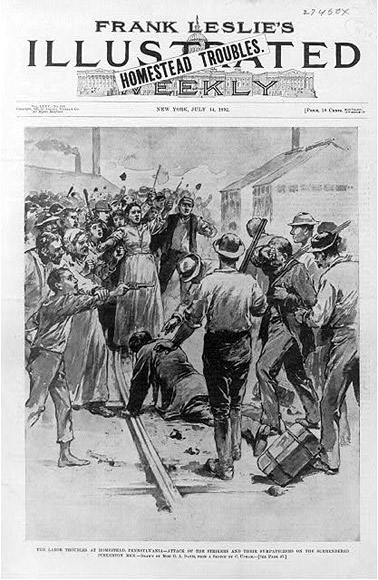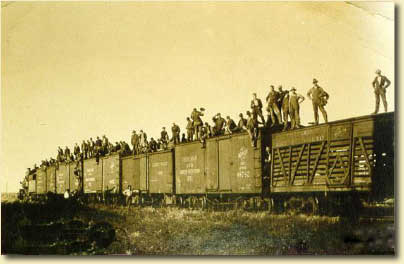There is almost complete job protection.
The ideal of capitalism is personified by Andrew Carnegie, who spent hundreds of millions of dollars on charity, including libraries for his workers; but when they went on strike (for example, at Homestead, Pennsylvania in 1892) he imported hundreds of strikebreakers, goons and mercenary private police (Pinkertons) who fought running gun battles with his strikers for four and a half months, so that hundreds of people were killed; then he wondered why his workers were too tired to go to his libraries at ten o'clock at night!

The ideal of communist agitators like Woodie Guthrie is the striker, with his Molotov cocktail, dynamite bomb or iron bar, murdering strikebreakers (invariably men even more desperate than the strikers themselves).

Fascism does away with all of this.
Obviously, as with all systems, the system only works well if competently and fairly administered.
"Stato corporativo", etc., is probably best translated as "guild State": economic fascism is a sub-variety of guild socialism, inspired by the guilds of the Middle Ages.
"Guild" is one of the meanings of "corporazione".
A "corporation", in the American sense of a "limited liability company", is usually referred to in Italian as a "società"; "corporazione" is much more abstract and is a very unusual word by comparison. For example, a "multinational corporation" is usually referred to as a "società multinazionale". "Incorporation", in the sense of "company formation", is "costituzione di una società". The same thing is true in other Latin languages.
"Stato corporativo", or the like, rather implies an "integral state", a "state in which the nation is one body", or some similar concept, almost always borrowed from Catholicism ("brothers in the body of Christ", for example).
Most fascist terminology is so vague and so mystical as to be almost entirely meaningless. For example, my favourite, "Spain is a unity of the spiritual in the universal" (from José Antonio Primo de Rivera). Does that mean anything to you?
Most neo-cons are Jews, and to Jews, philosophies are irrelevant. The only thing they are interested in is creating vast bureaucracies in which they personally wield absolute power.
The problems of the modern Western world are essentially racial, and will not be solved by slogans like "all power to the municipalities", and so on and so forth, borrowed from the 1930s.
In the 1930s, most European nations were relatively homogenous; the problems were extreme poverty, gross social injustice, primitive agriculture and class exploitation.
Most modern European "fascists" in the true sense are refugees from a museum, a mausoleum, and their literature does not interest me.
They are cowards who want to have their cake and eat it. They want what is positive in National Socialism, without having to admit that they are "racists".
Of course, where "globalization" is concerned, economic problems have not changed since the 1930s; but a racial element has been added, particularly through immigration.
See also:
Differences between National Socialism and Fascism by C.W. Porter